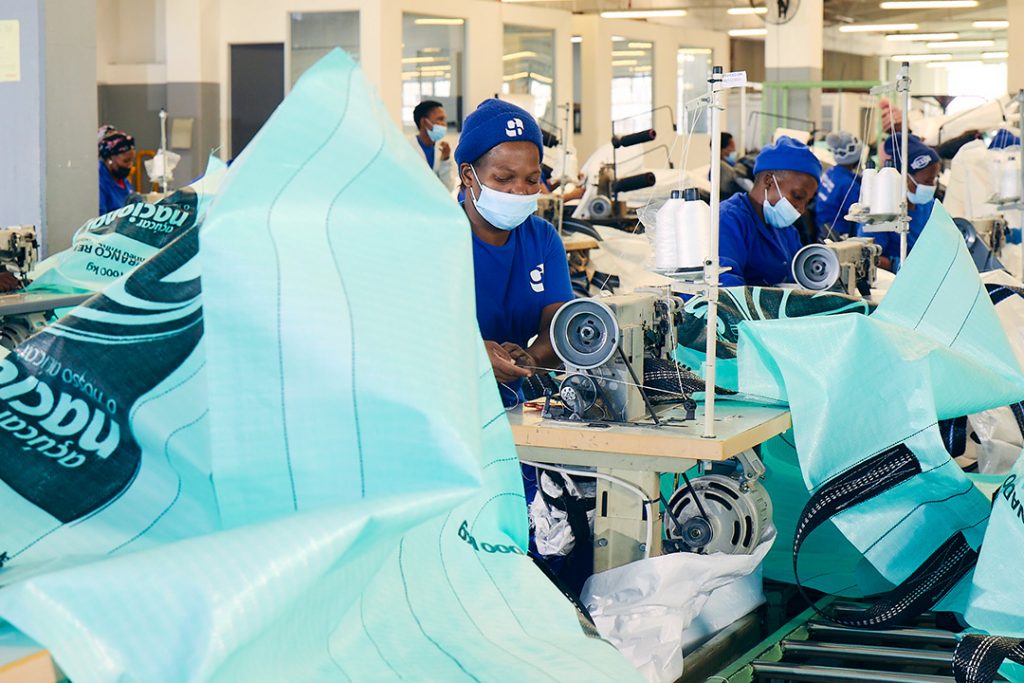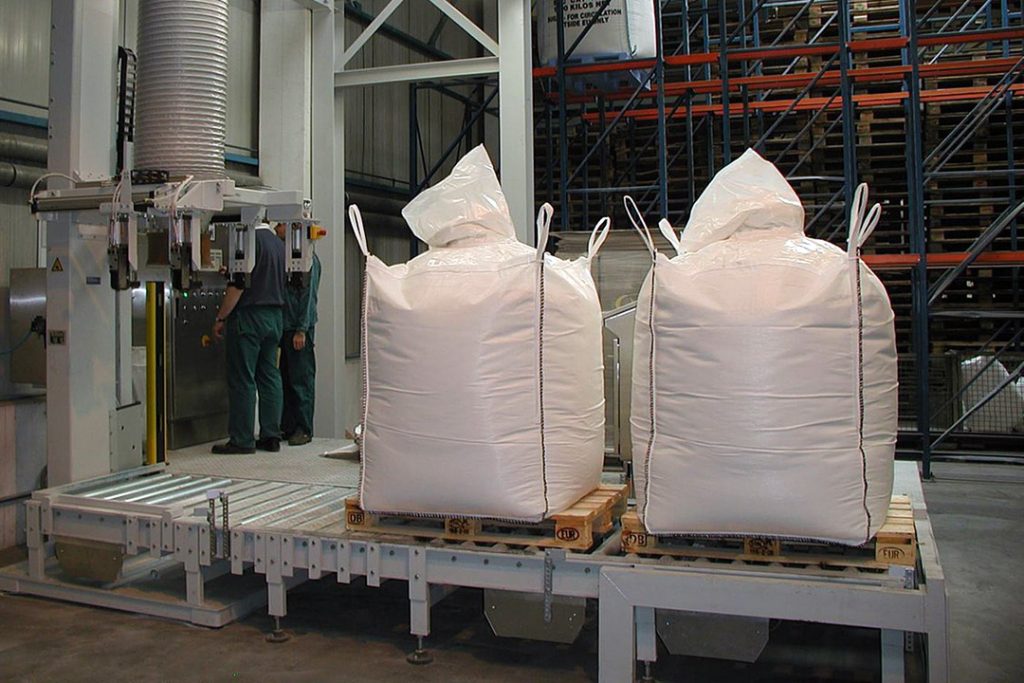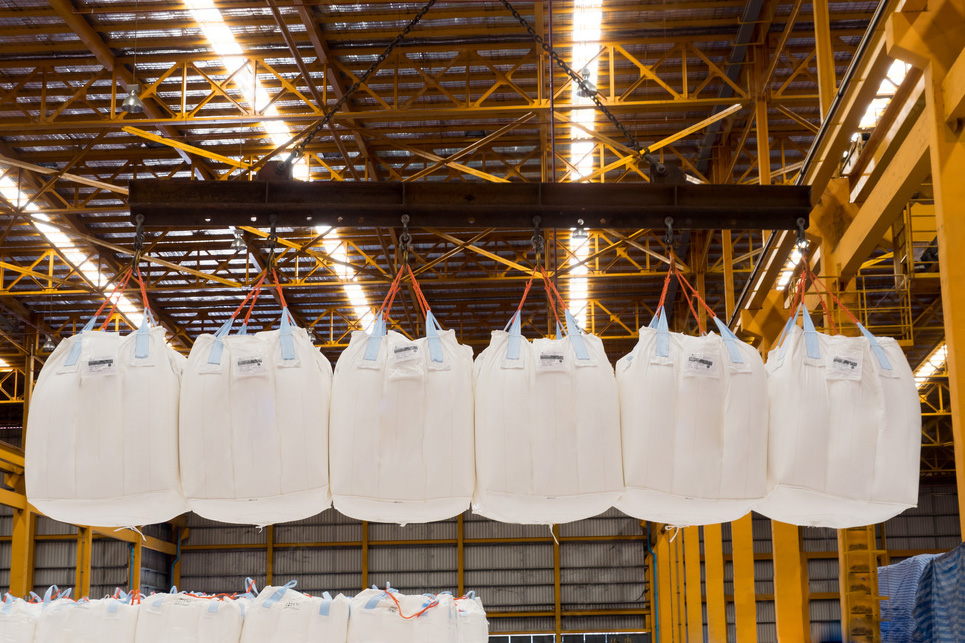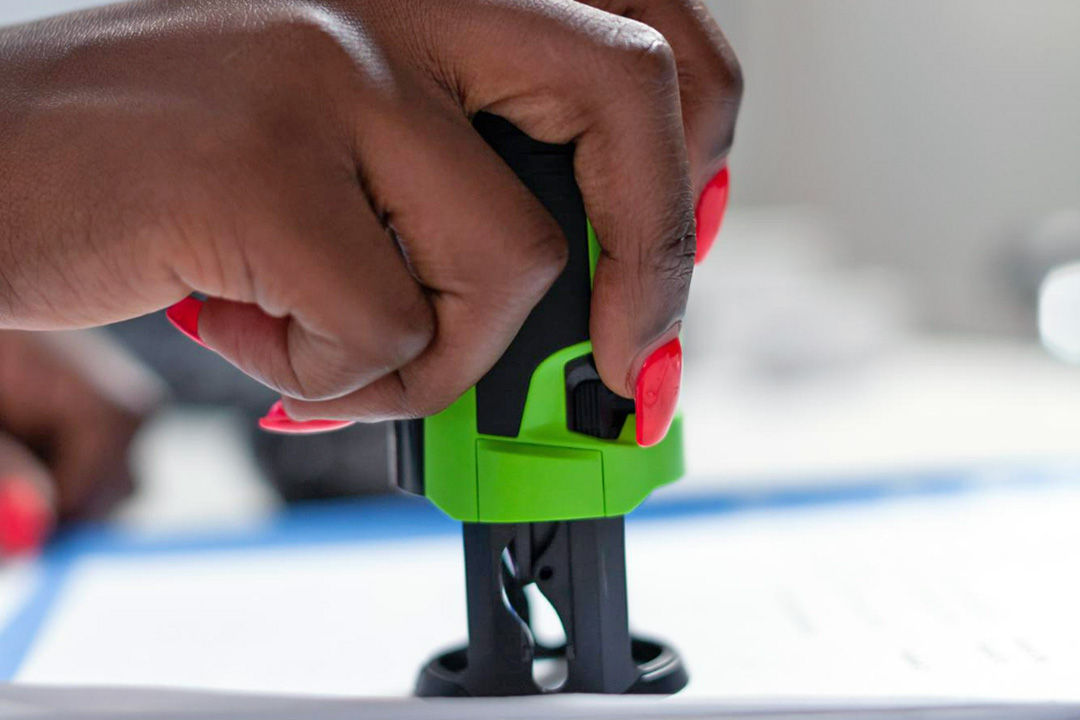Bulk bags are highly customisable packaging products, but how can you tell if the design or quality is good enough for your needs? One simple way to be sure is by looking for UN-certified designs. These bulk bags will meet international standards for design and production.
Custom Bulk Bags currently manufactures a number of UN-certified bulk bags, which are accredited through Ten E. In addition, we hold ISO 9001 certification for quality management, which guarantees the standards of our bulk bags. We produce up to 3.5 million bulk bags per year for various customers – all of which have a minimum safety factor rating of 5:1.
Our packaging products adhere to the highest levels of quality as a result of our stringent in-house testing and quality control programmes. So, how do you know when a UN-certified bulk bag is the best solution for your business?

When to choose a UN-certified design?
UN-certified bulk bags are most commonly needed for the storage and transportation of hazardous materials, including flammable, combustible and toxic substances that could potentially harm people or the environment. To qualify as a UN-certified design, the bulk bag must meet strict testing requirements and performance criteria.
In addition, these bulk bags must have certain labelling requirements that allow workers to easily identify what material is stored inside and how to properly handle or dispose of the product. The specific regulations relating to UN-certified designs are contained within the UN Recommendations on the Transport of Dangerous Goods handbook.

UN-certified bulk bag tests
While all of our bulk bags undergo performance testing, the UN-certified bags must meet more stringent controls than standard bulk bags. These more rigorous tests are intended to validate the bags’ ability to protect and contain the hazardous materials inside, both during shipping and storage.
UN-certified bulk bags have a heavier fabric for added durability, stability and protection. The heavier fabric helps to keep the bags upright when stacked or during bumpy transportation. In addition, the industry standard safety factor rating of 5:1 is increased to 6:1 for UN-certified designs.
To satisfy these safety factor rating tests, the bulk bags must be able to withstand 70 press-and-release top lift cycles at four times the Safe Working Load (SWL), followed by one more cycle at six times the SWL. The bags must be filled to 95% capacity and the tests must be conducted using the material to be transported in real life, or similar non-hazardous materials with the same physical properties.

Other testing procedures
In addition to top lift and topple tests, UN-certified bulk bags must also undergo stacking, drop, righting, tear and vibration tests:
- Stacking test – The bulk bag is filled to its SWL capacity on a flat surface and pressure is applied to the top of the bag to simulate a stack. The bag must remain standing and intact for 24 hours.
- Drop test – The bulk bag is filled to its SWL capacity and dropped from specified heights – depending on the requirements of the customer or manufacturer. The bag cannot burst or tear.
- Righting test – The bulk bag is filled to its SWL capacity and knocked over onto its side. It is then righted into its proper position by two lifting loops. The bag and the loops must not tear or snap.
- Tear test – The bulk bag is filled to its SWL capacity and cut with a blade. This cut must be at least 100mm long at a 45-degree angle. The tear cannot expand by more than 25% when a load equal to twice its SWL is applied for five minutes.
- Vibration test – The bulk bag is filled to its SWL capacity and placed on a vibrating platform. The frequency of vibration is set and the bag is subjected to this disturbance for one hour. It cannot leak or rupture.
If a bag fails any of these tests, it cannot be certified with UN markings. UN-certified bulk bags must pass the test in the year that they are manufactured. Before you store or transport any hazardous materials in bulk bags, be sure to consult with a supplier with the right expertise and knowledge.
Choose one that offers UN-certified designs as you will be assured of quality, reliability and effectiveness. By working with one of our consultants, you’ll be able to specify your exact requirements and receive the perfect bulk bags for your business. For more information about our bulk bags, please contact us today.
___
Custom Bulk Bags is a leading South African manufacturer of woven polypropylene bags for various industries, such as mining, chemicals and food. We are able to produce over 3.5-million bulk bags per year, keeping our customers in stock at all times. Our bags adhere to the highest levels of quality as a result of our stringent in-house testing and quality control programmes.
Custom Bulk Bags holds ISO 9001 certification and we currently have a number of UN-certified designs. We are a Level 2 B-BBEE manufacturer and supplier and fall under the ownership structure of Deneb Investments Limited. For more information on our products, contact sales@custombulkbags.co.za. Follow us on Facebook for our latest news and industry insights.
